
The Federal Energy Regulatory Commission (FERC) is an independent agency of the United States government that regulates the interstate transmission and wholesale sale of electricity and natural gas and regulates the prices of interstate transport of petroleum by pipeline. FERC also reviews proposals to build interstate natural gas pipelines, natural gas storage projects, and liquefied natural gas (LNG) terminals, in addition to licensing non-federal hydropower projects.
The 2000–2001 California electricity crisis, also known as the Western U.S. energy crisis of 2000 and 2001, was a situation in which the U.S. state of California had a shortage of electricity supply caused by market manipulations and capped retail electricity prices. The state suffered from multiple large-scale blackouts, one of the state's largest energy companies collapsed, and the economic fall-out greatly harmed Governor Gray Davis's standing.

The Public Utility Regulatory Policies Act is a United States Act passed as part of the National Energy Act. It was meant to promote energy conservation and promote greater use of domestic energy and renewable energy. The law was created in response to the 1973 energy crisis, and one year in advance of a second energy crisis.

A regional transmission organization (RTO) in the United States is an electric power transmission system operator (TSO) that coordinates, controls, and monitors a multi-state electric grid. The transfer of electricity between states is considered interstate commerce, and electric grids spanning multiple states are therefore regulated by the Federal Energy Regulatory Commission (FERC). The voluntary creation of RTOs was initiated by FERC in December 1999. The purpose of the RTO is to promote economic efficiency, reliability, and non-discriminatory practices while reducing government oversight.

The energy policy of the United States is determined by federal, state, and local entities. It addresses issues of energy production, distribution, consumption, and modes of use, such as building codes, mileage standards, and commuting policies. Energy policy may be addressed via legislation, regulation, court decisions, public participation, and other techniques.
Norman C. Bay is an American attorney. He is the former United States Attorney for the District of New Mexico. Bay was the first Chinese-American United States Attorney. Bay is the former chairman of the Federal Energy Regulatory Commission. He is currently a partner at the law firm of Willkie Farr & Gallagher.
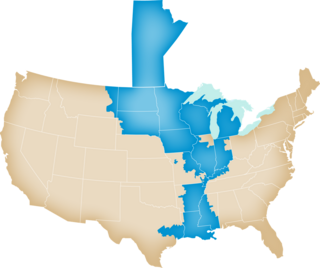
The Midcontinent Independent System Operator, Inc., formerly named Midwest Independent Transmission System Operator, Inc. (MISO) is an Independent System Operator (ISO) and Regional Transmission Organization (RTO). It provides open-access transmission service and monitors the high-voltage transmission system in the Midwestern United States, in Manitoba, Canada, and in a southern U.S. region that includes much of Arkansas, Mississippi, and Louisiana. MISO also operates one of the world's largest real-time energy markets. The 15 states covered by MISO are: Arkansas, Illinois, Indiana, Iowa, Kentucky, Louisiana, Michigan, Minnesota, Mississippi, Missouri, Montana, North Dakota, South Dakota, Texas, and Wisconsin.

A National Interest Electric Transmission Corridor (NIETC) corridor is a geographic region designated by the United States Department of Energy where electricity transmission limitations are adversely affecting American citizens. The Energy Policy Act of 2005 granted the Federal Energy Regulatory Commission (FERC) the authority to create these regions to increase transmission capacity within a short timeframe. If state and local governments fail to issue permits to increase transmission capacity in these areas, FERC can issue federal permits empowering project directors to use eminent domain to purchase property needed to complete projects.
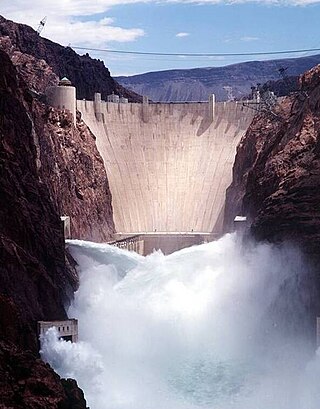
Hydropower policy in the United States includes all the laws, rules, regulations, programs and agencies that govern the national hydroelectric industry. Federal policy concerning waterpower developed over considerable time before the advent of electricity, and at times, has changed considerably, as water uses, available scientific technologies and considerations developed to the present day; over this period the priority of different, pre-existing and competing uses for water, flowing water and its energy, as well as for the water itself and competing available sources of energy have changed. Increased population and commercial demands spurred this developmental growth and many of the changes since, and these affect the technology's use today.
Talen Energy is an independent power producer founded in 2015. It was formed when the competitive power generation business of PPL Corporation was spun off and immediately combined with competitive generation businesses owned by private equity firm Riverstone Holdings. Following these transactions, PPL shareholders owned 65% of Talen's common stock and affiliates of Riverstone owned 35%. As a condition for FERC approval Talen agreed to divest approximately 1,300 megawatts of generating assets in the PJM Interconnection Region to mitigate FERC's competitiveness concerns. On December 6, 2016, Riverstone Holdings completed the purchase of the remaining 65% of Talen's common stock, making it a privately owned company.
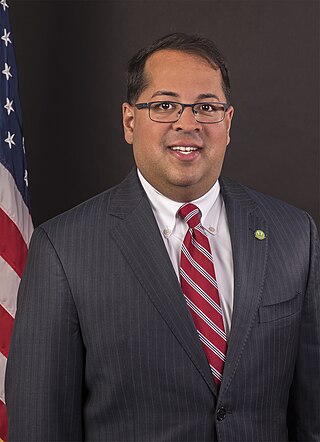
Indranil "Neil" Chatterjee is an American lawyer, political advisor, and government official. A member of the Republican Party, he served on the Federal Energy Regulatory Commission (FERC) from 2017 to 2021. He served as chairman of the commission under President Donald Trump from August 10, 2017 to December 7, 2017, and later from October 24, 2018 to November 5, 2020.

Kevin Joseph McIntyre was an American attorney and government official who served as a member and Chairman of the Federal Energy Regulatory Commission (FERC). Prior to his role at FERC, he was co-leader of the global energy practice at the law firm Jones Day. At Jones Day, McIntyre's legal practice focused on compliance and enforcement, energy trading, competition issues, and energy exports.

Cheryl LaFleur is an American attorney, executive, and government official who served as one of the 5 Commissioners of the Federal Energy Regulatory Commission (FERC) from 2010 to 2019. During her tenure as a Commissioner, she served as Chairman or Acting Chairman November 25, 2013 - April 14, 2015 and again January 23, 2017 - August 10, 2017. In September 2019, she was elected to the Board of Directors of ISO New England, beginning October 1, 2019.
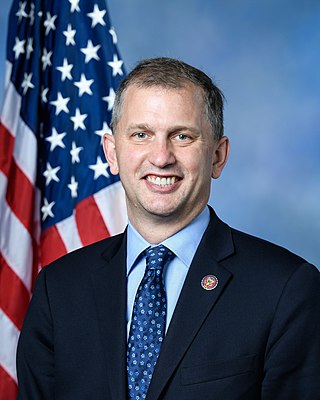
Sean Thomas Casten is an American businessman and politician serving as the U.S. representative for Illinois's 6th congressional district. The district covers southwestern Chicago, as well as many of Chicago's inner southwestern suburbs, such as Downers Grove, Wheaton, Lisle, Orland Park, and Western Springs. He is a member of the Democratic Party.

Bernard L. McNamee is a government official who served as Commissioner of the Federal Energy Regulatory Commission from 2018 to 2020. McNamee was confirmed to the position by the United States Senate on December 6, 2018. He previously served in various state and federal legal and policy positions and practiced energy law in the private sector.
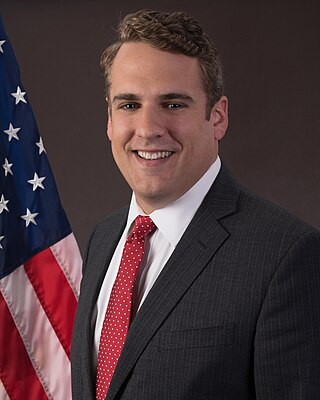
James Patrick Danly is an American attorney who was a member of the Federal Energy Regulatory Commission. He was nominated by President Donald Trump in 2019 and took office on March 30, 2020. He formerly served as the agency's general counsel. On November 5, 2020, he was named chairman of FERC. After serving for only 77 days, Danly was demoted on January 21, 2021, when President Biden named Richard Glick Chairman. He stepped down at the end of the 2023-2024 congressional session when his term expired.

Willie L. Phillips is an American attorney who is the incumbent chairman of the Federal Energy Regulatory Commission (FERC).

David Rosner is an American government official who has been a member of the Federal Energy Regulatory Commission (FERC) since 2024. He previously served as an energy industry analyst for FERC, detailed to the Democratic staff of the United States Senate Committee on Energy and Natural Resources.

Judy Wei Ya Chang is an American government official and academic who has been a member of the Federal Energy Regulatory Commission (FERC) since 2024. She previously served as undersecretary of the Massachusetts Executive Office of Energy and Environmental Affairs under Governor Charlie Baker.

















